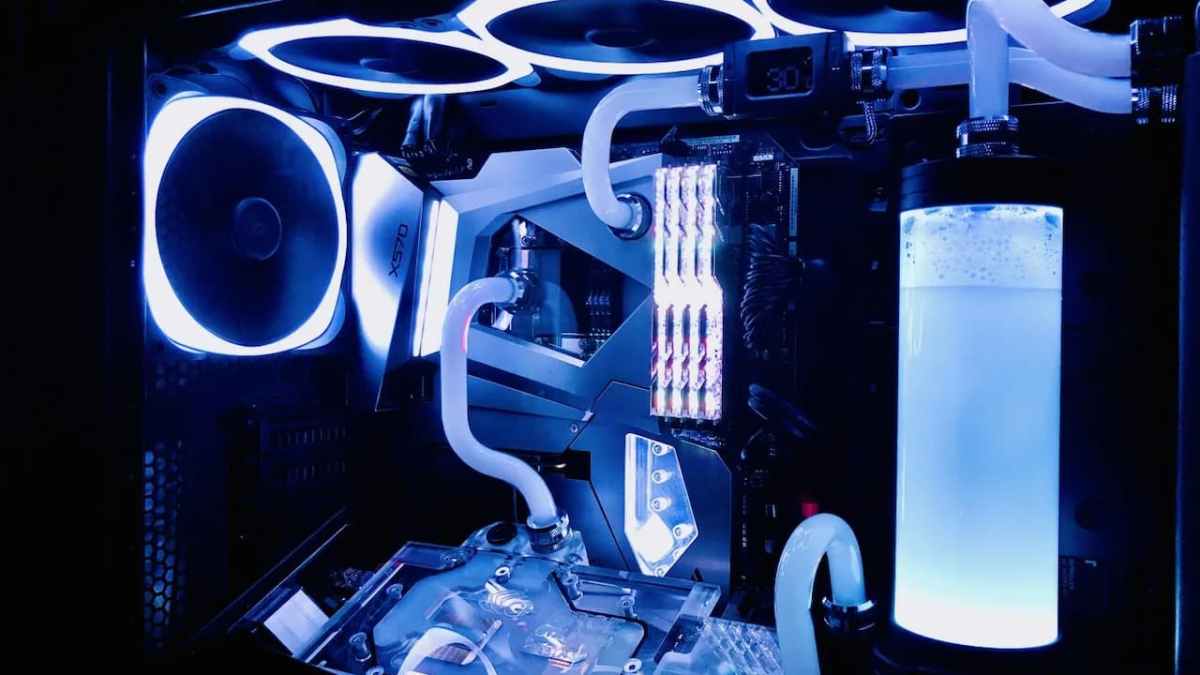There are clearly some Portal fans over at Nvidia, because more ray tracing content just arrived for Valve’s classic in the form of a popular mod known as Portal: Prelude RTX. It serves as an excellent compliment to the Portal RTX release that Nvidia showcased with the launch of the RTX 40 Series last year.
Portal: Prelude released way back in 2008 and serves as a prequel to the events which take place in the original Portal. The mod offers what’s essentially an entirely new game with more difficult levels, full voice acting, and the story to go along with it. It was later remastered with higher quality assets, and now benefits from the full RTX ray tracing treatment via Nvidia’s RTX Remix platform and toolset.
Credit goes to Nicolas ‘NykO18’ Grevet and David ‘Kralich’ Driver-Gomm alongside contributions from Nvidia’s team for incorporating the new technologies.
Make Portal: Prelude RTX smooth and shiny
In addition to the ray tracing lighting upgrades, DLSS 3 support is also included for RTX 40 Series GPU owners to improve gameplay smoothness with Frame Generation tech. Portal itself is a good candidate for Frame Generation since it doesn’t demand low latency to have a great experience. However, Portal: Prelude is all about a higher skill threshold and requires more player engagement than the base game.
Even so, DLSS 3 Frame Generation is a welcome gameplay improvement to go alongside these demanding RTX lighting upgrades and should make for a great experience for returning Portal players. We recommend checking out our DLSS 3 review coverage for more perspective on how it improves the experience in games such as these and what limitations the technology inherently yields, too.
RTX IO goes live
Nvidia also used this opportunity to include a new technology it’s been working on called RTX IO, which sounds like a similar solution to Microsoft’s Direct Storage. You’ll need an SSD to use RTX IO in conjunction with the GPU for rapid asset decompression that leads to faster load times and smaller download file sizes.
Nvidia states: “NVIDIA RTX IO also lowers Portal: Prelude RTX’s texture package install size by 44%, enabling gamers to enjoy nearly 32 GB of 4K textures loaded with lossless detail, while only taking up 18 GB of storage space.”
Keep in mind that PCIe 4.0 drives are the current performance-to-affordability sweet spot, but any SSD should provide a loading performance improvement. RTX IO will also feature in Ratchet & Clank: Rift Apart, launching July 26th on PC.
You just need to own Portal on Steam to play the Portal: Prelude RTX mod for free. Portal currently costs $9.99 USD, but often goes on sale for just a few dollars. As one of the greatest PC games of all time, it’s certainly worth keeping an eye on to check out the RTX ray tracing, RTX IO, and DLSS 3 Frame Generation upgrades.
You’ll need an Nvidia graphics card in this case to play Portal: Prelude RTX, with the minimum requirement being an RTX 2060 and the recommendation being an RTX 3080 GPU. Some users already report performance issues, but feedback is mixed at this time of writing.
Check out Nvidia’s official blog post covering the Portal: Prelude RTX release, including a guide for optimized settings.






Published: Jul 19, 2023 10:58 am